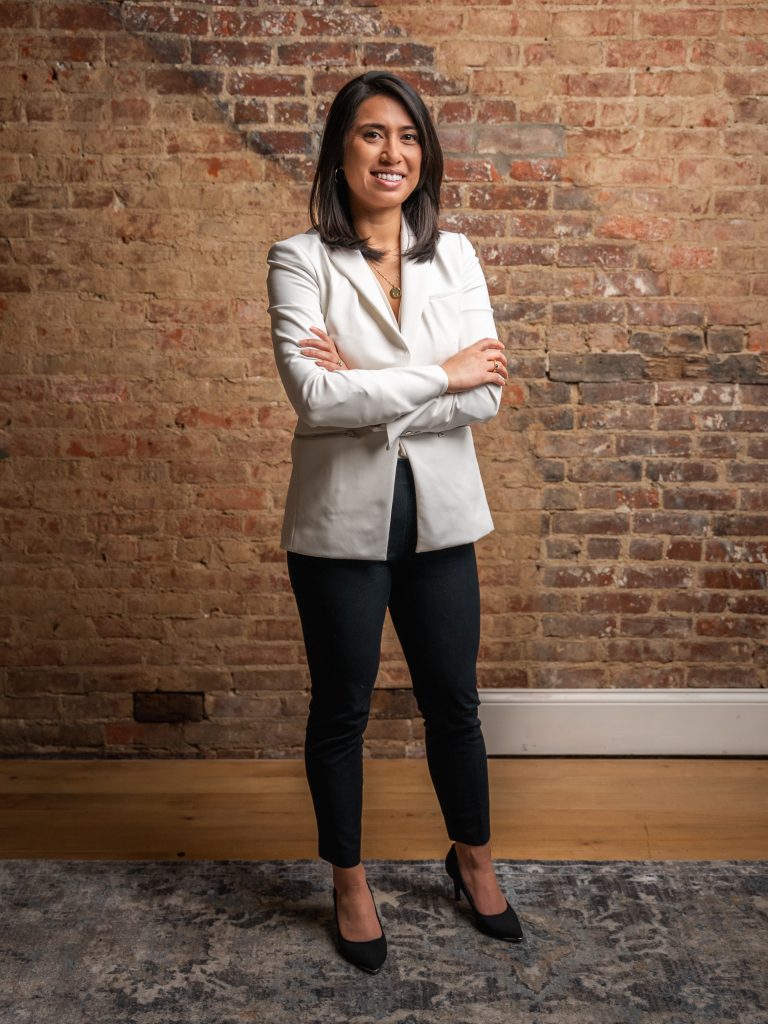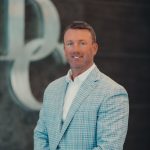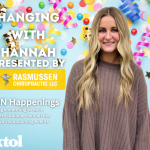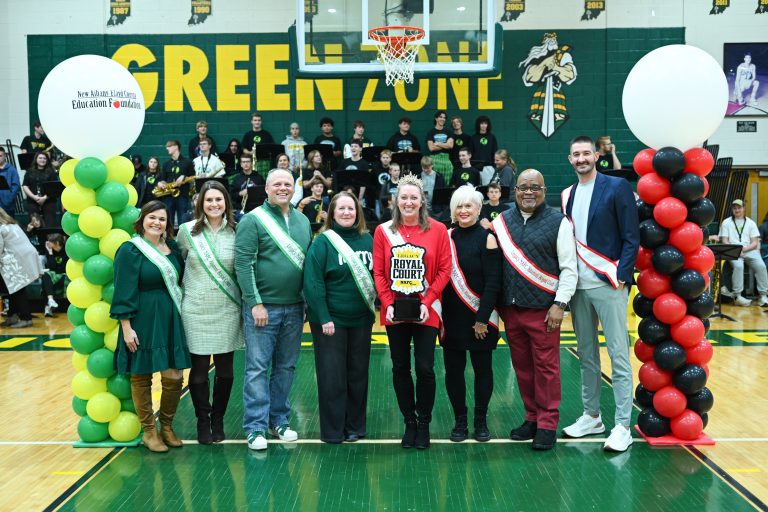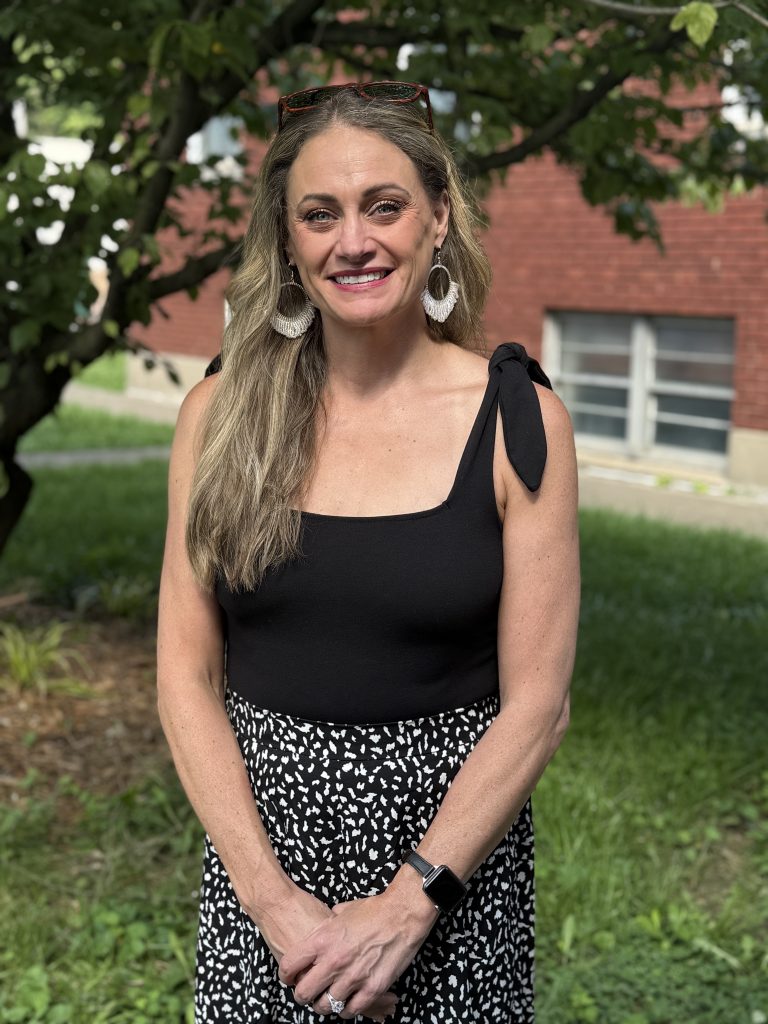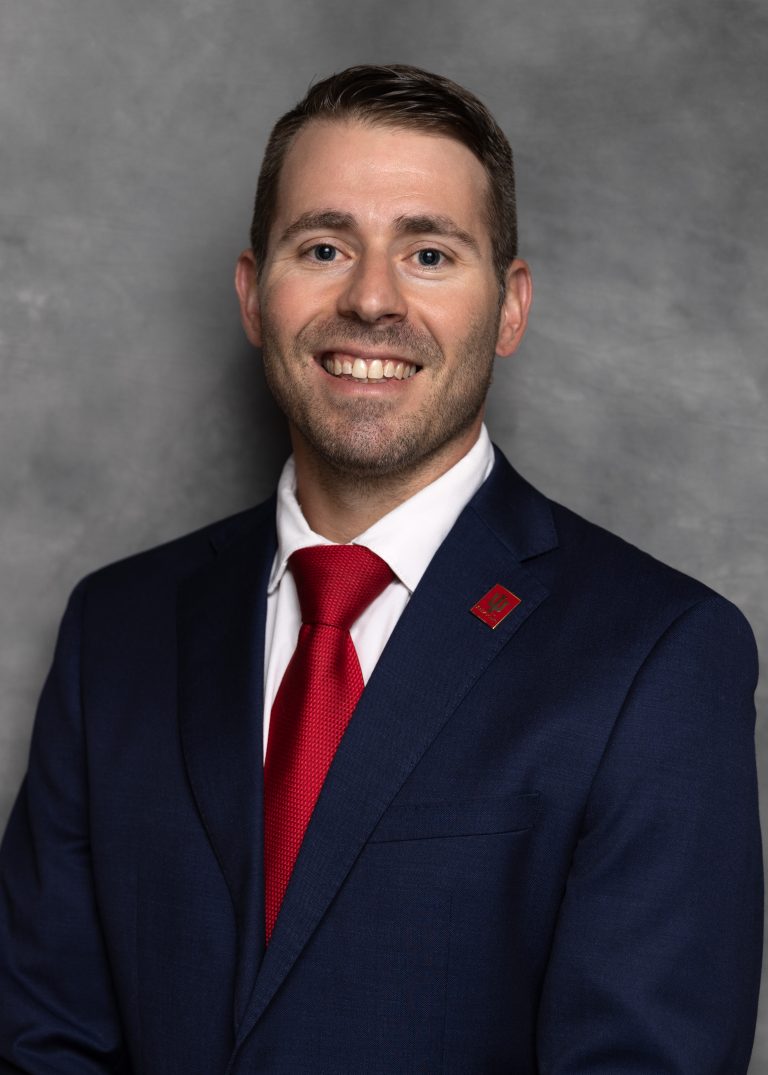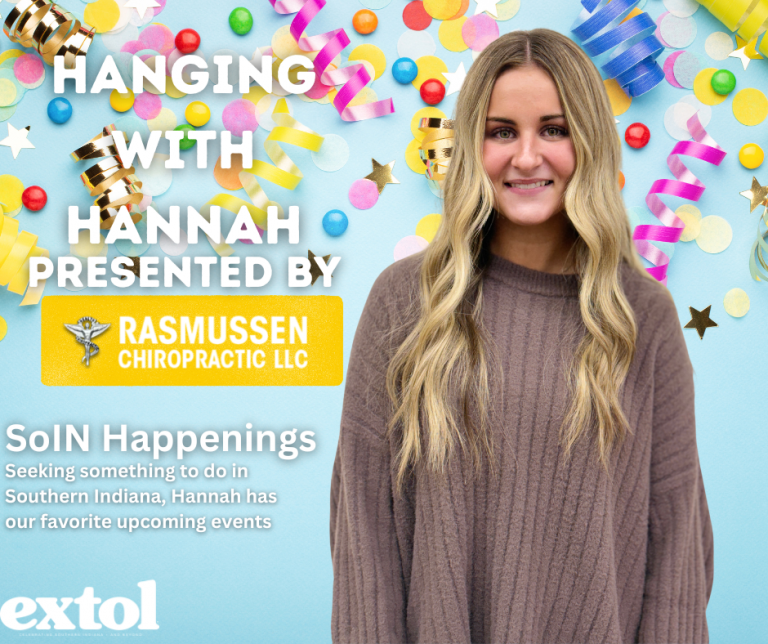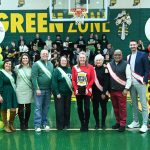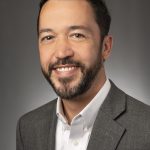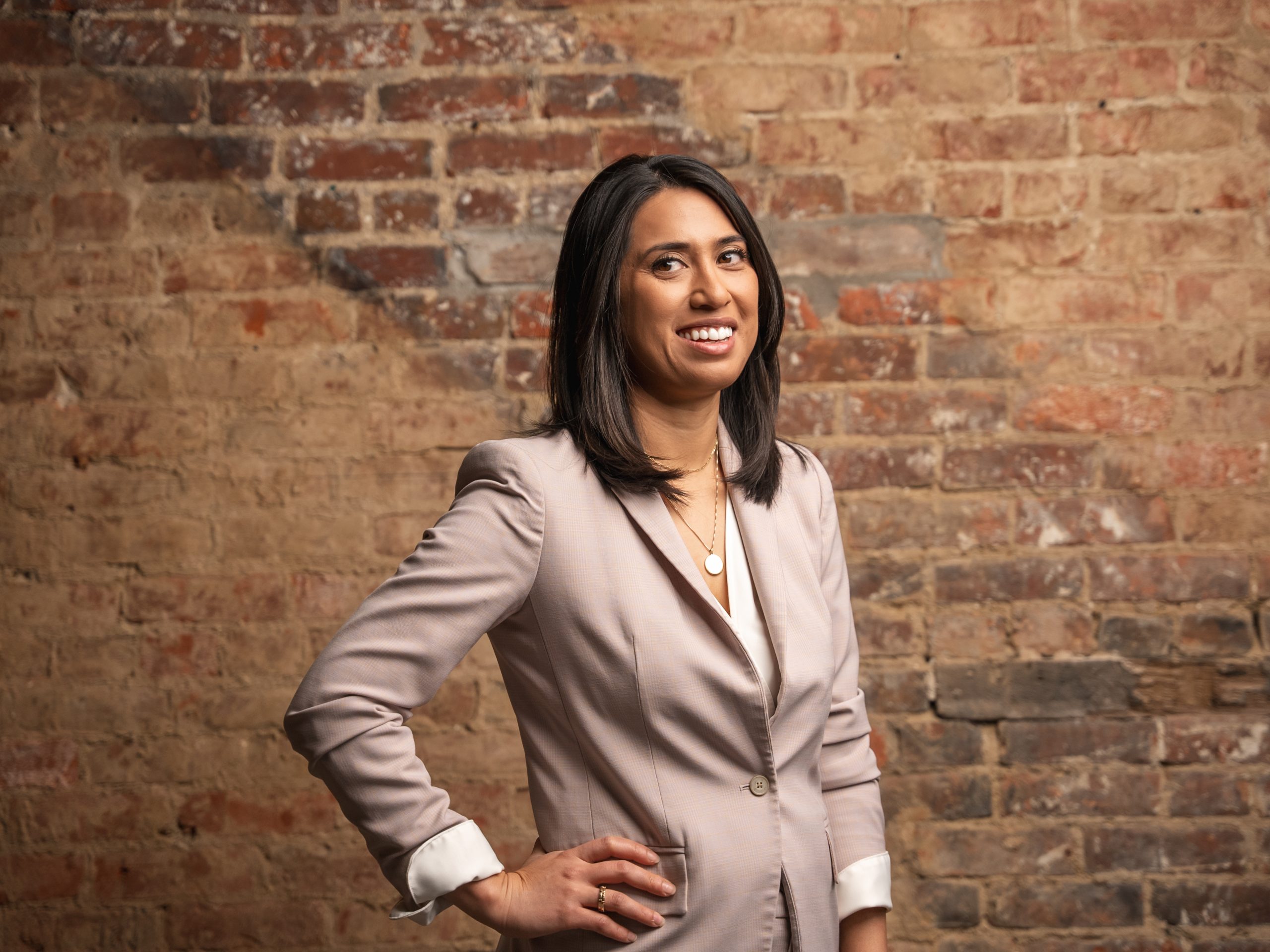
#image_title
Jessica Staten: Leading With a Passion to Help Others Thrive
We sat down with Floyd Memorial Foundation Executive Director Jessica Staten to talk about what drives her in her role. It became clear, rather quickly, that she’s so much more than her title; she makes it a point to live her purpose and passion in every aspect of her life.
Explain a little bit about what the Floyd Memorial Foundation is and what your role encompasses.
The Floyd Memorial Foundation was founded in 1978 to provide financial support to the Floyd County hospital (now Baptist Health Floyd), directing millions of dollars into various hospital programs and community health initiatives over the years.
Although we’re no longer affiliated with the hospital, the Foundation continues its efforts to improve health outcomes in Southern Indiana. Through collaboration, education, and strategic philanthropic investments, we support nonprofit organizations working in areas such as preventive care, access to healthcare services, health education, disease prevention and management, mental health and wellness, and social determinants of health. As the executive director, my role is to lead the strategic, financial, and operational activities of the organization.
What led you to this part of your professional career?
Throughout my nonprofit career, I’ve been immersed in the ongoing battle to meet the overwhelming demand for human services. Whether serving adults, children, families facing homelessness, or survivors of abuse and neglect, the needs consistently exceeded our capacity to help. The onset of the COVID-19 pandemic only exacerbated these challenges, hitting vulnerable populations the hardest.
During my tenure as the former executive director of CASA of Floyd County, a nonprofit aiding hundreds of children in the foster care system due to abuse or neglect, we faced significant challenges. Waitlists swelled into the hundreds, leaving us feeling like we were barely scratching the surface. The toll on staff mental health was evident in rampant burnout and the constant scramble for resources. Every lost grant threatened critical staff positions, keeping us trapped in a cycle of reactive firefighting—a scenario all too common in the nonprofit sector.
In my role as director of communications for the Homeless Coalition of Southern Indiana, volunteering at the White Flag homeless shelter provided me with profound insight into the interconnectedness of our society’s most pressing social issues. Those seeking shelter also needed help with employment, transportation, and access to mental health and substance use treatments. Similarly, my time at CASA revealed that the majority of children in our program had parents grappling with the very same challenges, underscoring systemic issues within our communities.
Amidst these reflections, I found myself grappling with fundamental questions: What if we could prevent child abuse, or any of these negative health outcomes, from occurring in the first place? What if, instead of constantly reacting to symptoms, we addressed the underlying root causes?
These questions prompted me to delve into the literature on prevention and I found my way to reading research on childhood trauma. I learned how adverse childhood experiences—abuse, poverty, a parent dealing with substance use disorder, etc.—all increase the likelihood of negative health outcomes for adults later on in life, such as homelessness, obesity, cardiovascular disease, and substance misuse. Moreover, I discovered that many parents of the children in our program had themselves been involved in the foster care system as children, perpetuating a generational cycle of trauma, disease, and mental health struggles.
This realization prompted a paradigm shift in my perspective on health, leading me to prioritize prevention and public health initiatives. Driven by a desire to address underlying causes and build capacity for prevention efforts, I enrolled in the University of Louisville’s Masters of Public Health (MPH) program. It was right around that time that the opportunity to lead the Floyd Memorial Foundation emerged. The foundation wanted to put more focus on improving community health by supporting prevention programming and fostering better partnerships with local nonprofits; the role was in perfect alignment with my newfound purpose.
What leadership qualities do you value most and try to emulate?
I deeply value and try to emulate qualities encapsulated by servant leadership. This type of leadership approach is all about fostering an environment where every team member feels valued, supported, and empowered to reach their full potential. I aim to lead with authenticity, empathy, and a strong commitment to serving others.
Have you read any books that have inspired your work? Or are there notable figures that have said or done something that has motivated you?
Absolutely! While I’ve read many inspiring books, one that really stands out is Simon Sinek’s book ‘Start With Why’. In his book, Sinek dives deep into the concept of leadership and the importance of understanding your fundamental “why.” He argues that when you know your “why,” you have a deeper understanding of your motivations, your values, and your aspirations. Since reading it, finding my own “why” has given me a sense of purpose and direction, empowering me to pursue meaningful goals and contribute positively to the world around me. Additionally, communicating my “why” has helped me connect to others who resonate with and support my vision for the future.
For those curious, my “why” is: to foster healthy environments of safety, connection, and belonging so that everyone has the opportunity to thrive.
What do you love about the Southern Indiana community?
I love the small-town feel of Southern Indiana. It has some pretty charming downtowns, parks, and eateries. What truly makes it special, though, is the people. They’re the heart and soul of this place. Although they don’t always agree with each other, many of the people I’ve met genuinely care for and love this community.
What does your life look like outside of work?
Balancing work and play has always been a bit of a struggle for me—I tend to take life a tad too seriously and get lost in the grind. I’ve learned over time that life isn’t all about fulfilling your purpose; it’s also about savoring the joy and fun that it brings. Outside of work, I try to spend as much quality time as I can with my family; my husband, Josh, and our soon-to-be 3-year-old son, Archie. I’m also intentional about spending this time recharging, which for me looks like long walks in nature, diving into personal development audiobooks, or exploring the latest developments in AI. I’m a lover of learning, particularly around health (surprise, surprise), so I regularly indulge in documentaries, articles, and podcasts aimed at optimizing longevity and well-being.
Do you have any other professional goals or fun personal goals coming up?
I have a lot of professional and personal goals charted, but the one I’m most excited about is doing more work around women’s leadership and empowerment. Being a young female professional and mother, I’ve had my fair share of challenges in the workplace. Many times, I’ve been talked down to, dismissed, or not taken seriously because of my age, gender, or… fill in the blank. That led to a lot of self doubt at various points in my career, and it’s been a journey of understanding my inherent worth, learning to take up space, engaging in critical conversations, and advocating for myself.
I’m acutely aware that many women grapple with similar issues, often choosing to remain silent for fear of rocking the boat or being judged. They often prioritize others’ needs over their own and suppress their voices in the process. Over the years, I’ve had countless women from a variety of professional backgrounds and age groups reach out to me, seeking a safe space to share their struggles. They often find they lack support to overcome these challenges. It brings me so much joy to help women discover their voices, clarify their aspirations, and embrace their dreams. My ultimate goal? Eventually turn this passion into an official side hustle and help coach women to live more intentional, empowered, and fulfilling lives while building a community of connection and belonging in the process.





